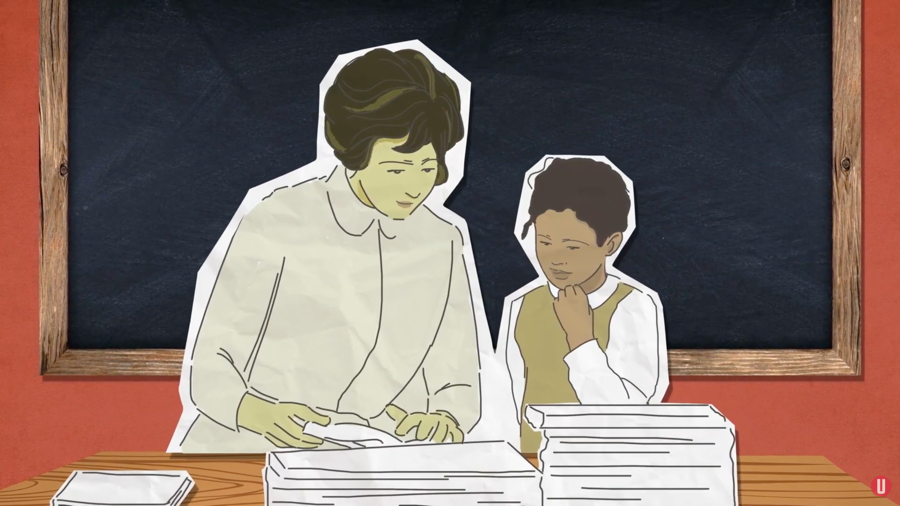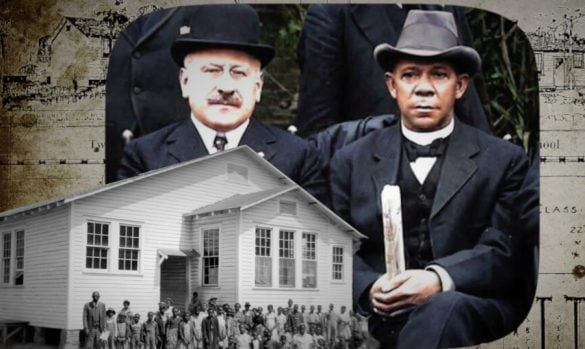- Daily Curated Videos & News from TKSST
- Posts
- ✨🌈🪐 Videos & News Today • November 14, 2025
✨🌈🪐 Videos & News Today • November 14, 2025
Editor's note: We're taking a break from sharing new videos for just a few days while we update the TKSST Gift Guide for this holiday season. In the meantime, we'll continue to share the latest science news as well as thematic archived videos throughout the week. And don't forget, we've got over 7,000 videos covering whatever you're curious about!
In today's science news: An AI-powered bandage that tends to your wounds 🤖, turning your house's walls into batteries 🔋, and why are Narwhals toying with Arctic scientists? 🦄. Plus, more headlines after today's videos 👇
Thanks for reading, and have a great day. If you enjoy our daily newsletter, please recommend it to a friend. –MC
✨🌈🪐 Today on TKSST
On November 14, 1960, six-year-old Ruby Bridges became the first Black student to attend William Frantz Elementary School in New Orleans, following a federal court order to desegregate the school. Escorted by federal marshals through crowds of protesters, Bridges attended classes taught by the only teacher who remained, Barbara Henry. Her enrollment marked a pivotal moment in the civil rights movement and American education. From 2023, here’s more on Ms. Henry…
And from 2025 on TKSST: Between 1912 and 1932, educator Booker T. Washington and philanthropist Julius Rosenwald partnered to build 4,977 schools and 217 teachers' homes across 15 Southern states. Through matched community funding, these Rosenwald Schools served over 663,000 students and dramatically improved literacy rates and educational access for Black communities, ultimately becoming one in five rural schools in the South by 1928.
🪐🧬🧠 Things we learned today
🏥 A new smart bandage uses AI to monitor wounds and deliver precise treatments automatically • IEEE Spectrum
🏠 MIT researchers created concrete that stores electricity, turning building walls into batteries for powering homes • Anthropocene Magazine
🌍 A crumbling supercontinent called Nuna helped complex life evolve during Earth’s "boring billion" years • Popular Mechanics
🗑️ Researchers are applying archaeological methods to understand plastic pollution as a defining feature of our era • The Conversation
🏯 Chinese archaeologists recently discovered 573 ancient stone fortresses dating from 2800 to 1000 BCE • Greek Reporter
🦄 Scientists are puzzled as to why Narwhals repeatedly bash their underwater microphones in the Arctic • Discover Wildlife
🌟 Astronomers captured the first image of a supernova's olive-shaped explosion just 26 hours after the star died • Gizmodo
🦧 Conservation efforts in Vietnam transformed former hunters and loggers into cave tour guides • Mongabay
Want a weekly digest of TKSST videos? Get our weekly newsletter.
✨🌈🪐 From our trusted partner
Join over 4 million Americans who start their day with 1440 – your daily digest for unbiased, fact-centric news. From politics to sports, we cover it all by analyzing over 100 sources. Our concise, 5-minute read lands in your inbox each morning at no cost. Experience news without the noise; let 1440 help you make up your own mind. Sign up now and invite your friends and family to be part of the informed.
Thanks for reading. TKSST members help us keep curating these daily discoveries and support our mission to amplify videos that inspire curiosity and learning. We're essentially providing a platform to elevate creators whose work deserves a wider audience. If these morning gems brighten your coffee routine, consider becoming a member. Your support directly funds the work that brings you tomorrow's "wait, what?" moments.
This site may earn affiliate commissions from the links you click, helping to support TKSST at no extra cost to you.
The Kid Should See This is made possible by TKSST Members. ✨🌈🪐
You’re subscribed to Daily Curated Videos & News Today from TKSST. Get a weekly summary instead.




